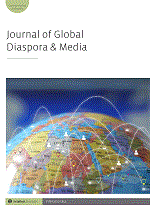
Full text loading...

By drawing on an ethnographic study of digital communication practices of Serbian Londoners, this article identifies a new form of subtle spontaneous identity politics on social media that seeks to reassert national identity and present it both as an exotic difference and as cosmopolitan. It argues that this form of identity politics has been brought about thanks to social surveillance on social media, the context of London – as a global city – and the particular socio-historical position of the Serbian national identity. Thus, this article contributes to the socio-technical approach to social media, which considers both technical properties of social media and a range of social factors, including users’ agency, in understanding the social consequences of social media. The article concludes that this identity politics is ambivalent in its character – while it is a source of empowerment, it also tends to commodify difference.

Article metrics loading...

Full text loading...
References


Data & Media loading...

Publication Date:
https://doi.org/10.1386/gdm_00004_1 Published content will be available immediately after check-out or when it is released in case of a pre-order. Please make sure to be logged in to see all available purchase options.